“Whitewater” rafting is a rarity in Thailand with only a few rivers offering an exhilarating experience. One exception draws adventurers to experience three days of fast water along the Thai-Lao border: The Wa.
The Wa, an important tributary of Thailand’s longest river, the Nan, flows through a rugged limestone mountain range that defines the border, passing through two national parks along the way. It offers year-round wild water, which becomes pulse-pounding during the monsoon season.
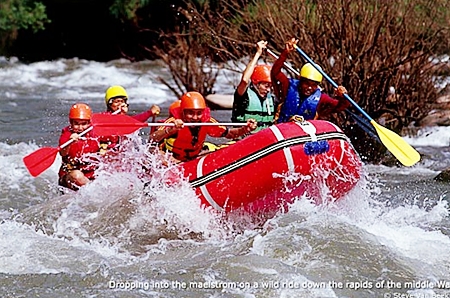
Nan, 670 kilometres north of Bangkok, is served by air from the capital or from Chiang Mai, the main northern city. Flights drop the visitor off in Nan town on the banks of the Nan River, famous for its ancient monasteries and its longboat races each October.
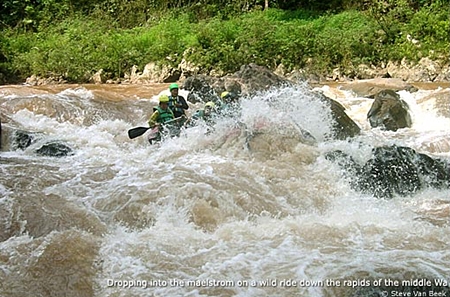
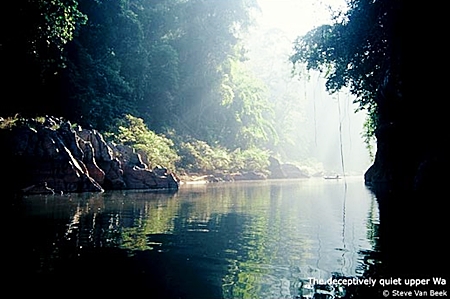
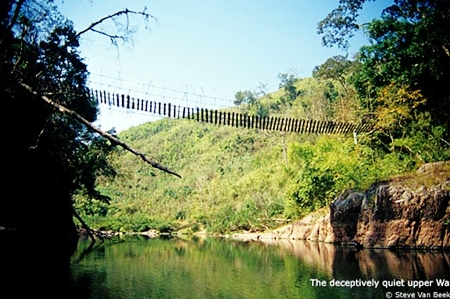
The trip begins with a drive northeast, and a stop in Bor Kluea (Salt Wells). For 400 years, the town’s residents have drawn salt from eight natural wells. One can watch the water being boiled away in meter-wide pans set over open fires. The salt is prized because it is sweeter than sea salt and was once transported by pony trains for sale as far away as China.
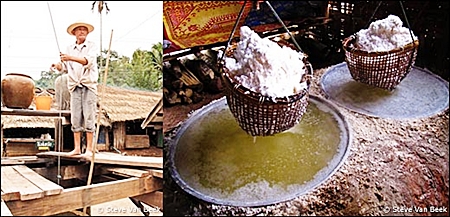 Extracting liquefied salt from a well in Bor Kluea, a stop on the way to the Wa.jpg Boiling away the liquid to produce a sweet salt in Bor Kluea
Extracting liquefied salt from a well in Bor Kluea, a stop on the way to the Wa.jpg Boiling away the liquid to produce a sweet salt in Bor Kluea
“Whitewater” rafting is a rarity in Thailand with only a few rivers offering an exhilarating experience. One exception draws adventurers to experience three days of fast water along the Thai-Lao border: The Wa.
The Wa, an important tributary of Thailand’s longest river, the Nan, flows through a rugged limestone mountain range that defines the border, passing through two national parks along the way. It offers year-round wild water, which becomes pulse-pounding during the monsoon season.
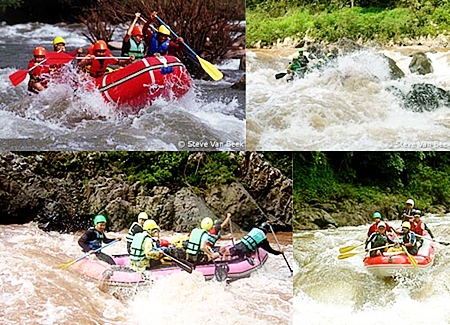 Dropping into the maelstrom on a wild ride down the rapids of the middle Wa
Dropping into the maelstrom on a wild ride down the rapids of the middle Wa
Nan, 670 kilometres north of Bangkok, is served by air from the capital or from Chiang Mai, the main northern city. Flights drop the visitor off in Nan town on the banks of the Nan River, famous for its ancient monasteries and its longboat races each October.
The trip begins with a drive northeast, and a stop in Bor Kluea (Salt Wells). For 400 years, the town’s residents have drawn salt from eight natural wells. One can watch the water being boiled away in meter-wide pans set over open fires. The salt is prized because it is sweeter than sea salt and was once transported by pony trains for sale as far away as China.




